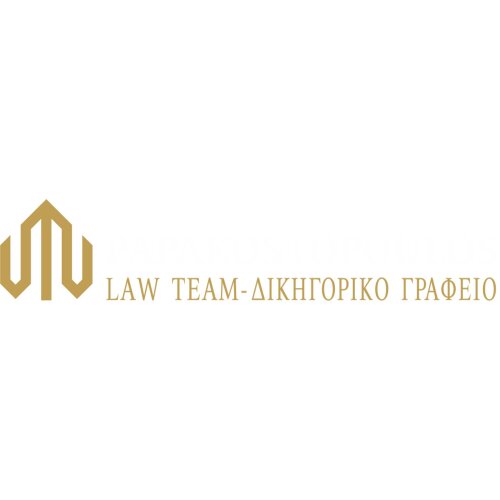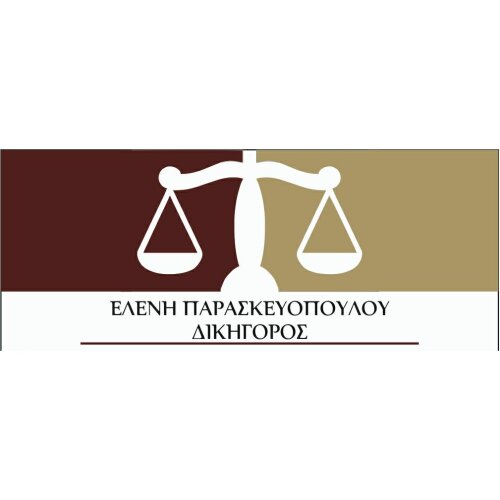Best Citizenship Lawyers in Pátrai
Share your needs with us, get contacted by law firms.
Free. Takes 2 min.
List of the best lawyers in Pátrai, Greece
About Citizenship Law in Pátrai, Greece:
The citizenship law in Pátrai, Greece operates under the jurisdiction of the Greek Citizenship Code. This law provides the foundational principles and guidance for obtaining, retaining, or losing citizenship. It recognizes dual citizenship and provides multiple routes to becoming a legal citizen, like birth, descent or naturalization. For the latter case, residency for a particular duration, satisfactory comprehension of Greek language and culture, and a record of legal conduct are among the prime requisites.
Why You May Need a Lawyer:
Detailed knowledge of legal procedures, requirements and interpretations of the law can be quite complex for a layperson. A skilled lawyer can assist in situations such as attempting to obtain citizenship through naturalization, dealing with immigration matters, managing legal disputes or charges that could affect your citizenship status. A lawyer can ensure all applications and paperwork are carried out correctly, reducing the risk of setbacks, giving advice on various pathways to citizenship and proposing the best course of action based on personal circumstances.
Local Laws Overview:
Local laws in Pátrai reflect the broader Citizenship Code of Greece, but might apply certain rules with slight variations. Generally, foreign nationals can apply for naturalization after seven years of legal residency in Greece, with a year-long uninterrupted stay immediately before the submission of the application. In addition, they must prove satisfactory comprehension of Greek language, history and culture, and have no serious criminal record. Those of Greek descent or who are married to a Greek citizen, may have their residency duration requirements lessened.
Frequently Asked Questions:
1. Are children born in Pátrai to foreign parents eligible for citizenship?
Under the Greek Citizenship Code, children born in Greece to foreign parents can apply for citizenship, under specific circumstances, once they turn 18.
2. Can I hold dual citizenship in Greece?
Yes, Greece permits dual citizenship. You don't have to renounce your original citizenship when becoming a Greek citizen.
3. How long does the naturalization process usually take?
The overall duration can vary on a case-by-case basis, but typically, the process may take several months to years.
4. What if I have a criminal record?
A serious criminal record can potentially obstruct your eligibility for citizenship. It's recommended to consult with an attorney to understand the impacts and potential ways to proceed.
5. How can I maintain my Greek citizenship once obtained?
Once you have obtained Greek citizenship, it is lifelong unless renounced or revoked due to certain legal violations.
Additional Resources:
Sources like the Hellenic Republic Ministry of Interior official website, the Immigration and Social Integration Office in Pátrai, and many online legal forums offer valuable information. Furthermore, organizations like the Greek Council for Refugees provide aid and legal advice regarding issues of nationality and citizenship.
Next Steps:
If you require legal assistance related to citizenship in Pátrai, first identify your needs and circumstances. Then, contact a local legal professional specializing in citizenship issues or a relevant support group. Ensure to collect and prepare all necessary documents and have a thorough understanding of your situation before going to a consultation.
Lawzana helps you find the best lawyers and law firms in Pátrai through a curated and pre-screened list of qualified legal professionals. Our platform offers rankings and detailed profiles of attorneys and law firms, allowing you to compare based on practice areas, including Citizenship, experience, and client feedback.
Each profile includes a description of the firm's areas of practice, client reviews, team members and partners, year of establishment, spoken languages, office locations, contact information, social media presence, and any published articles or resources. Most firms on our platform speak English and are experienced in both local and international legal matters.
Get a quote from top-rated law firms in Pátrai, Greece — quickly, securely, and without unnecessary hassle.
Disclaimer:
The information provided on this page is for general informational purposes only and does not constitute legal advice. While we strive to ensure the accuracy and relevance of the content, legal information may change over time, and interpretations of the law can vary. You should always consult with a qualified legal professional for advice specific to your situation.
We disclaim all liability for actions taken or not taken based on the content of this page. If you believe any information is incorrect or outdated, please contact us, and we will review and update it where appropriate.










